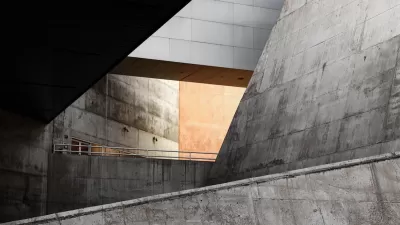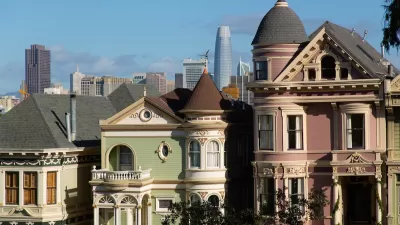Development that depends on subsidies is not fostering true growth and instead is a financial house of cards.

"Most cities and towns in North America are functionally insolvent. This is not hyperbole. It comes down to a simple question: Is new development producing enough wealth to fund the long-term maintenance of its own infrastructure—let alone public safety and all the other services that we expect government to provide?" asks Charles L. Marohn, Jr.
The answer is no, he says, because growth and productive growth are not the same thing. In car-centric cities, tremendous amounts of money are poured into streets, parking, and other infrastructure, but the return on investment is low. One example is big-box retail, where the financial productivity of properties, measured as value per acre, is generally dismal compared to more robust downtown, mixed-use developments.
He suggests that municipalities focus on strategies that foster creative reuse and redevelopment instead of development patterns that require huge subsidies. "America needs to step off the kinetic growth treadmill and embrace an approach that truly builds wealth and serves our citizens. We need to shift to a bottom-up approach for building our cities, one freed from the pressures of national growth targets."
FULL STORY: Opinion: This ‘Ponzi scheme’ surrounding development leaves most cities and towns functionally insolvent

Alabama: Trump Terminates Settlements for Black Communities Harmed By Raw Sewage
Trump deemed the landmark civil rights agreement “illegal DEI and environmental justice policy.”

Study: Maui’s Plan to Convert Vacation Rentals to Long-Term Housing Could Cause Nearly $1 Billion Economic Loss
The plan would reduce visitor accommodation by 25% resulting in 1,900 jobs lost.

Planetizen Federal Action Tracker
A weekly monitor of how Trump’s orders and actions are impacting planners and planning in America.

Wind Energy on the Rise Despite Federal Policy Reversal
The Trump administration is revoking federal support for renewable energy, but demand for new projects continues unabated.

Passengers Flock to Caltrain After Electrification
The new electric trains are running faster and more reliably, leading to strong ridership growth on the Bay Area rail system.

Texas Churches Rally Behind ‘Yes in God’s Back Yard’ Legislation
Religious leaders want the state to reduce zoning regulations to streamline leasing church-owned land to housing developers.
Urban Design for Planners 1: Software Tools
This six-course series explores essential urban design concepts using open source software and equips planners with the tools they need to participate fully in the urban design process.
Planning for Universal Design
Learn the tools for implementing Universal Design in planning regulations.
Caltrans
Smith Gee Studio
Institute for Housing and Urban Development Studies (IHS)
City of Grandview
Harvard GSD Executive Education
Toledo-Lucas County Plan Commissions
Salt Lake City
NYU Wagner Graduate School of Public Service





























